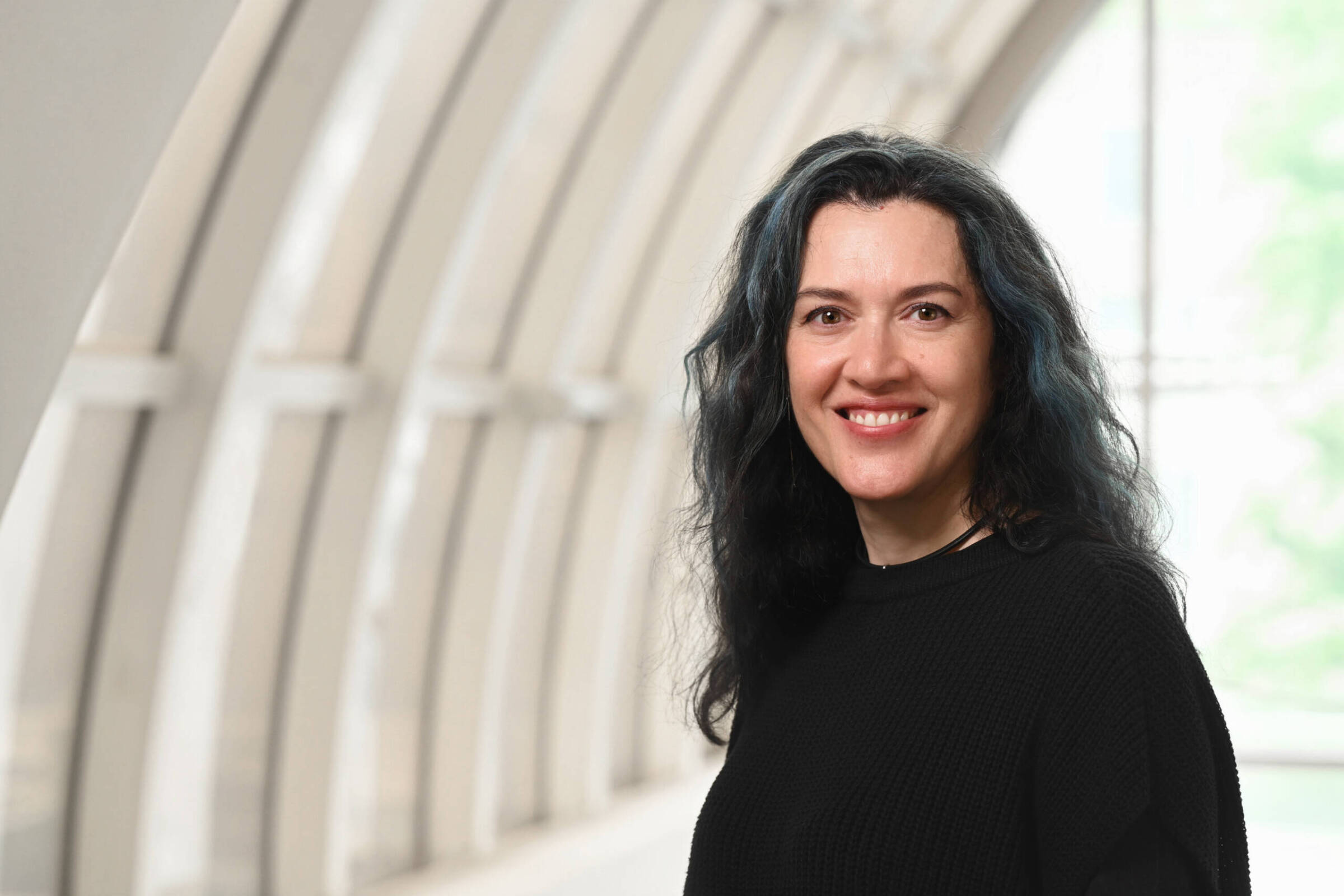Teresa Davoli
 Teresa Davoli
Teresa Davoli
Presented by Sidney Strickland on behalf of Titia de Lange
B.S., University of Pisa
M.S., San Raffaele University
Telomere-driven Tetraploidy and its Relevance to Cancer
I will read remarks prepared by Titia de Lange who unfortunately couldn’t be here today:
It is difficult to do justice to Teresa Davoli’s remarkable talent in the two minutes allotted to each graduating student. Teresa left campus about a year ago to join Steve Elledge’s lab at Harvard University, where she is supported by a Helen Hay Whitney Fellowship. Here at Rockefeller she was honored with the David Rockefeller fellowship, the Anderson Center for Cancer Research fellowship and the Women & Science fellowship.
Teresa joined our lab in early 2008 at a time when she was still speaking her charming, but at times challenging, staccato Italian English. She is from Parma and became enormously popular because she would bring us her father’s wine and amazingly large chunks of the best Parmesan cheese you can imagine.
Teresa joined the lab because she had a keen interest in cancer research and in fact had already done quite some work in this area with Pier Giuseppe Pelicci in Milan. To explore a cancer-relevant aspect of telomere biology, she focused on the question of how the loss of telomere function contributes to genome instability in cancer. What followed was a breathtaking period in which Teresa ran her own independent research project and demonstrated that shortening of telomeres can drive cells into an aberrant state where they duplicate their whole genome. Because telomeres shorten in the early stage of tumor development, Teresa’s observations help explain why so many human cancers have twice the normal number of chromosomes.
Teresa published her findings in Cell and Cancer Cell, and earlier this year she was awarded the prestigious Weintraub Graduate Student Award for her work. Hal Weintraub was a brilliant scientist and a much-loved mentor. Fred Cross, a member Teresa’s thesis committee, had been a postdoc with Hal. He wrote to Teresa when she received the award as follows:
“Re-reading your telomere re-replication paper, I was very struck with the depth and sophistication of the biological analysis — not just ‘DNA damage causes over-replication,’ but a whole detective story from telomere shortening in hyperplastic cells, to polyploidization and the possibility of aneuploid disasters in cells that survive crisis. Hal definitely would have appreciated the work.”


